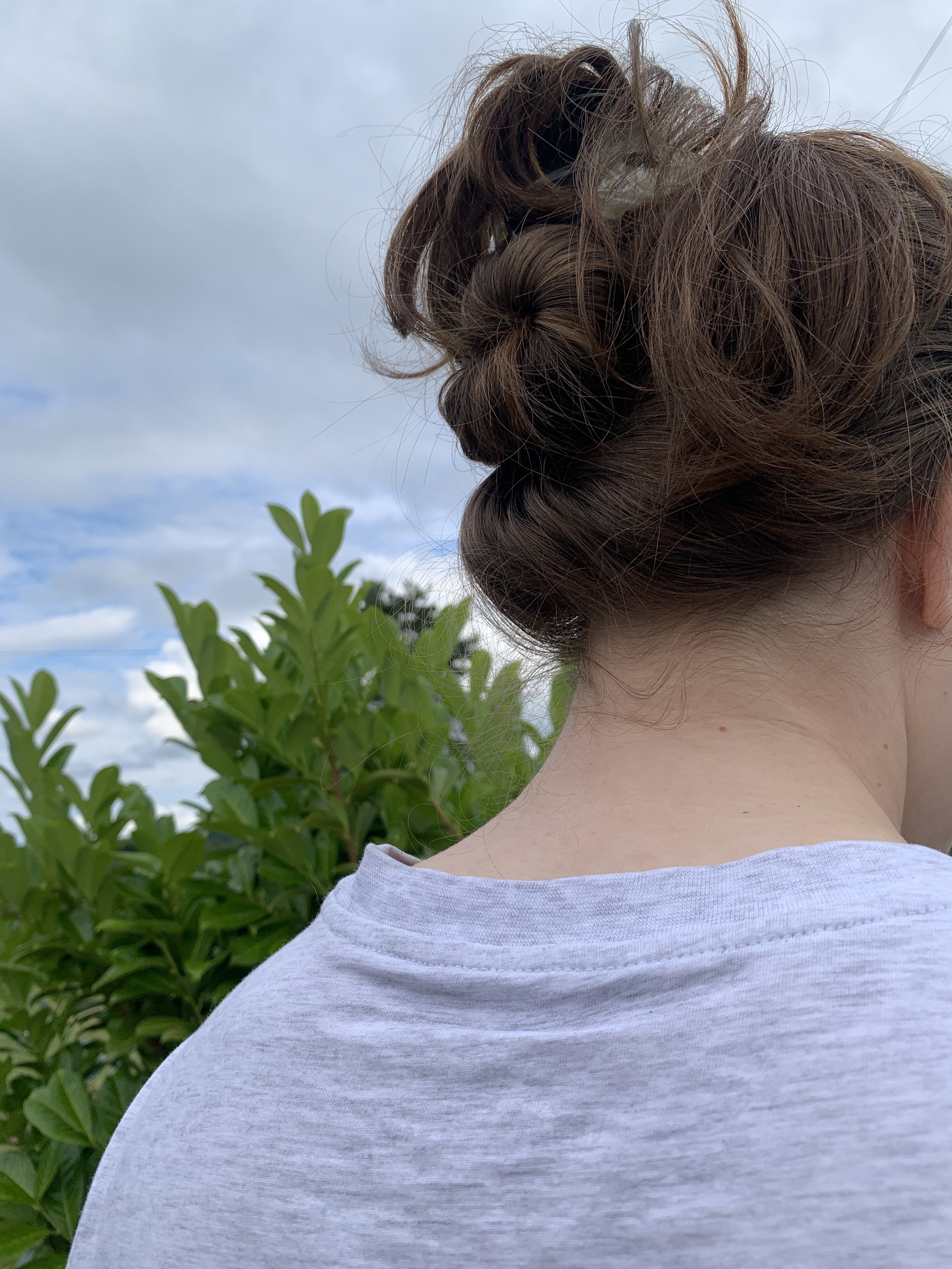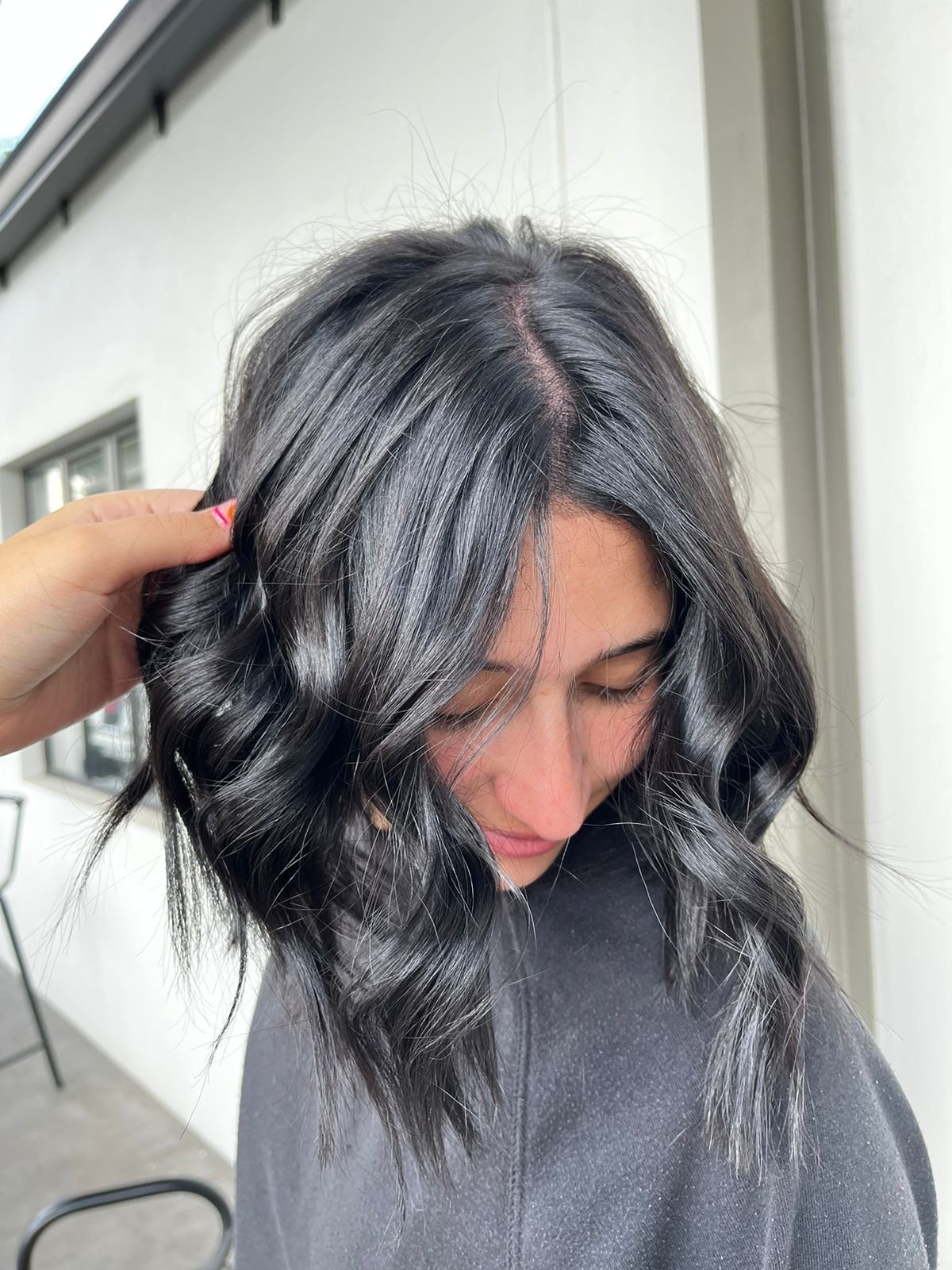5 Hair Care Mistakes You're Probably Making
Image Via Dupe Photos
When it comes to hair care, there are many myths and misconceptions that can lead us astray.
From using hot water in the shower to washing our hair daily, our hair care routine may be doing more harm than good.
It's important to understand that healthy hair starts with a healthy scalp, and it's essential to take care of both in order to achieve the hair of your dreams.
In this blog post, we'll be discussing 5 common hair care mistakes that could be preventing you from achieving your hair goals.
Mistake 1: Sleeping with wet hair
Sleeping with wet hair is a common habit that many of us are guilty of, but it can actually be damaging to your hair.
When your hair is wet, it is in its most fragile state and is more susceptible to breakage.
Additionally, sleeping with wet hair can cause frizz and make your hair look flat and lifeless in the morning.
When you sleep with wet hair, it can cause your hair to tangle and knot, which can lead to breakage. It can also cause your hair to flatten and lose volume, making it look limp and lifeless.
Furthermore, sleeping with wet hair can also cause frizz, as the moisture from your hair can cause the cuticle to raise, leading to a rough, frizzy texture.
To avoid this, make sure your hair is completely dry before going to bed, or use a silk pillowcase to reduce friction and damage.
Silk pillowcases are smooth and gentle on your hair and reduce friction which can cause damage.
Also, you can opt for a quick-drying hair towel or a microfiber towel instead of regular cotton towels.
They are specifically designed to absorb moisture quickly, so your hair dries faster and you can go to bed with dry hair.
Another tip is to air dry your hair as much as possible before going to bed, or use a hair dryer on a low heat setting.
This will not only dry your hair but also protect it from high heat.
And if you can't avoid sleeping with wet hair, you can try doing a braid or a bun, this will help to keep your hair in place and prevent tangling and knots.
Overall, sleeping with wet hair is a habit that can cause damage to your hair and prevent you from achieving your hair goals.
By making sure your hair is dry before going to bed, you can protect your hair from breakage and frizz, and wake up with healthy, shiny hair.
Mistake 2: Washing your hair with hot water in the shower
Washing your hair with hot water in the shower is another common mistake that many of us make.
Hot water can strip the natural oils from your hair, leaving it dry, brittle, and prone to breakage. The heat from the water can cause the cuticles on the hair shaft to open up, allowing the natural oils and moisture to escape.
This can lead to dryness, tangling, and breakage, making your hair appear dull and lifeless.
When you use hot water to wash your hair, it can also lead to an itchy scalp. The heat from the water can cause blood vessels in the scalp to dilate, leading to increased blood flow, and in turn, an itchy scalp.
Furthermore, the high temperature of the water can lead to the overproduction of sebum, which can lead to an oily scalp, dandruff, and acne.
Instead, wash your hair with lukewarm water, which is gentle on your hair and scalp.
When you rinse your hair, finish with a cool water rinse to seal the cuticles and add shine.
The cool water helps to close the cuticles on your hair shaft, which can help to lock in moisture, and give your hair a glossy, healthy appearance.
Image via Dupe Photos
Mistake 3: Applying conditioner on your scalp
Many people make the mistake of applying conditioner to their scalp, thinking it will help with dandruff or dryness.
However, applying conditioner to your scalp can actually clog your pores and lead to an oily scalp.
When you apply conditioner to your scalp, it can build up on the hair follicles and cause them to become clogged. This can lead to an oily scalp, dandruff, and even hair loss.
When you apply conditioner on your scalp, it can also lead to an itchy sensation.
The conditioner can cause the scalp to feel itchy, which can be uncomfortable and distracting.
Furthermore, conditioner can cause the scalp to become too oily, which can lead to an overproduction of sebum. This can lead to an oily scalp, dandruff, and acne.
Instead of applying conditioner to your scalp, focus on applying it to the ends of your hair, where it is needed the most.
The ends of your hair are the oldest and most damaged part of your hair, and they need the most moisture and nourishment.
When you apply conditioner to the ends of your hair, it can help to repair and strengthen them, making them less prone to breakage.
Another tip is to use a lightweight conditioner, especially if your hair is fine or oily.
Heavy conditioners can weigh down your hair, making it look greasy and lifeless. A lightweight conditioner can provide the necessary moisture and nourishment without weighing down your hair.
Mistake 4: Washing your hair daily
Washing your hair daily is a common mistake that many people make, but it can strip your hair of its natural oils and lead to dryness, breakage, and an itchy scalp.
When you wash your hair, you're not only removing dirt and styling products, but also the natural oils that protect your hair and scalp.
These oils are essential for maintaining a healthy moisture balance, and when you wash your hair too frequently, you risk stripping them away.
When you wash your hair daily, you can also cause your scalp to become dry and itchy.
The frequent washing can strip the scalp of its natural oils, making it feel dry and irritated. This can cause your scalp to produce more oil to compensate for the loss, which can lead to an oily scalp, dandruff, and acne.
Instead of washing your hair daily, try to wash it every other day or even less frequently, depending on your hair type and scalp.
If you're worried about your hair looking greasy, try dry shampoo or a hair oil to refresh your hair between washes.
Dry shampoo is a powder-based product that can absorb excess oil and give your hair a clean, fresh look.
Hair oils can also help to nourish your hair and scalp and can be used to refresh your hair between washes.
Another tip is to use a gentle shampoo that is specifically designed for your hair type.
Many shampoos contain harsh ingredients that can strip your hair of its natural oils, leading to dryness, breakage, and an itchy scalp. By using a gentle shampoo that is specially formulated for your hair type, you can help to maintain a healthy moisture balance.
Mistake 5: Missing deep conditioner
Missing a deep conditioner is a common mistake that many people make, but it's an essential step in your hair care routine.
A deep conditioner is designed to penetrate the hair shaft and repair damage, leaving your hair soft, smooth, and easy to manage.
These conditioners are formulated to provide extra moisture and nourishment to your hair, which can help to repair damage and strengthen the hair from within.
When you don't deep condition your hair, it can lead to dryness, breakage, and an itchy scalp. The hair lacks the necessary moisture and nourishment to maintain its health and strength. The dryness can lead to tangling and breakage, and the lack of moisture can lead to an itchy scalp, which can be uncomfortable and distracting.
It is recommended to use a deep conditioner at least once a week and leave it in for at least 10 minutes for best results.
You can also use a deep conditioner with heat, such as a steamer or a heating cap, as the heat can help to open the cuticles and allow the conditioner to penetrate deeper into the hair shaft. This can provide even more moisture and nourishment, leaving your hair even softer and smoother.
Another tip is to choose a deep conditioner that is formulated for your hair type.
For example, if you have dry and damaged hair, you may want to use a deep conditioner that is formulated to repair and strengthen dry hair.
If you have curly hair, you may want to use a deep conditioner that is formulated to define and hydrate curls.
By choosing the right deep conditioner for your hair type, you can achieve the best results.
In conclusion, our hair care routine can make or break the health of our hair. By avoiding these common hair care mistakes, you can take the first step towards healthier, happier hair.
Remember, healthy hair starts with a healthy scalp, so make sure to take care of both for best results.
Your hair is your crown, and it's essential to treat it with the care and attention it deserves.
By understanding and avoiding these common hair care mistakes, you'll be on your way to achieving the hair of your dreams.
READ MORE LIKE THIS:






Want to dye your hair a different colour? This post will tell you if the colour you want will suit you